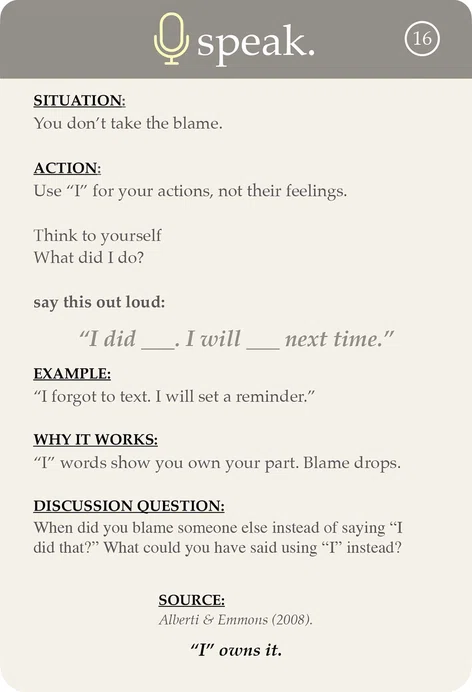If you’ve ever said the wrong thing in a conversation — and who hasn’t — an ACSA member has co-developed a new tool that can help.
ReFramed is a communications card deck that teaches evidence-based strategies on how to respond more effectively during conversations. Each card contains a microlesson that not only introduces a technique, but encourages players to practice it by “reframing” actual scenarios.
Built on more than 100 peer-reviewed studies, the deck was developed by Scott Manthey, a lifelong martial artist, creative technologist, and entrepreneur; Ariel Tourner, a learning designer, educator, and 3D artist; and Dr. George Manthey, an award-winning educator, former ACSA executive and coaching expert.
As a father and son, George and Scott Manthey have been communicating throughout their lives and were interested in ways to improve their relationship by having better conversations. Using his background in martial arts discipline, Scott Manthey realized you could teach a small skill, like a communication model, and encourage mastery through practice. Tourner designed the cards, ensuring they work equally well for children, adults, and professionals. George Manthey has offered guidance on making the cards practical, drawing upon his experience as an education consultant and leadership coach.
“We thought maybe it’s something that’s got some commercial value, but more importantly for me, some value in really changing how people interact with each other,” George Manthey said.
Each card contains a situation. The card then prompts players to take an action, usually a thought or something to say out loud. There is also a simple explainer for why this approach works and a citation for the research the approach is based upon. For example, the “You talk before you listen” card encourages players to use the phrase, “I heard you say, ‘___.’ Is that right?” to check for understanding and show the other person that you listened.
For those who struggle with the concept on the front of the card, the back of each card is a “mirror” that provides a slightly different approach to the situation.
The cards, which are the size of a tarot deck, contain four “suits” — Think, Speak, Act, and Connect — each covering a pillar of behavioral change.
George Manthey said he can see reFramed being a useful tool in schools. Teachers, counselors and administrators can use it as an intervention for students. He’s also writing a teacher’s guide on how to use the cards for games and discussions that support social-emotional learning.
“Everything’s designed to be a 2-minute practice or less,” he said. “A teacher could pull a card and say, ‘Let’s all practice this. Get into a small group and let’s just try it.’”
In our rapidly evolving world, where we have dozens of digital communication platforms, the creators of reFramed want to strengthen the face-to-face connections people have by helping them develop better communication habits.
“I keep calling it a low-tech solution to a big tech problem,” Manthey said. “I just hope that the conversations that people have would be cleaner, more respectful, and more impactful — and lead to growth.”
ReFramed debuted on Kickstarter this month for prepurchase and cards will be printed based on demand during the initial launch. For more information, visit
reframedgame.com.

A sample card from reFramed, a new communication improvement card deck co-developed by ACSA member Dr. George Manthey.




